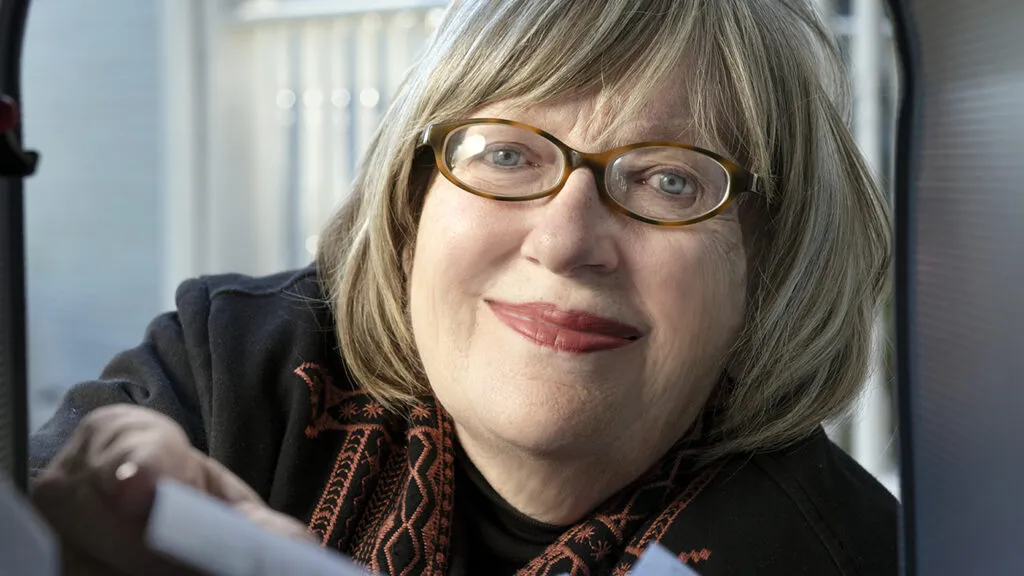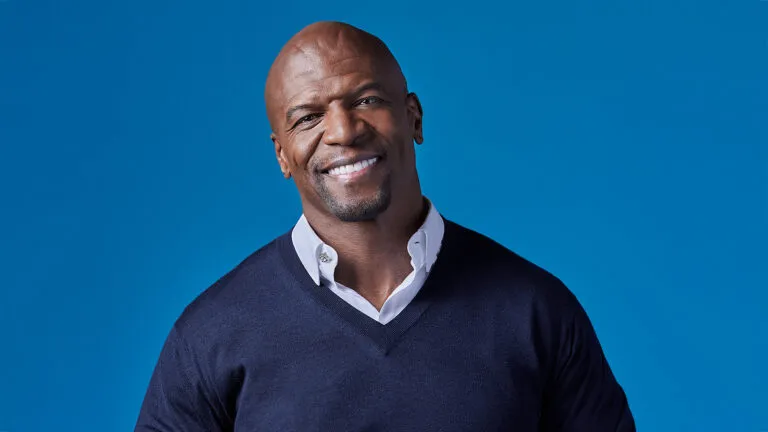I sat cross-legged in the middle of my bed. A storm lashed the windows. I should have felt deliciously cozy on this antique four-poster, snug in my restored log cabin.
Instead, I was terrified.
A wicker tray on my lap held a stack of medical bills—43 of them. All from the past week. And more were coming. After two years of unexpected health problems and surgeries using out-of-network doctors and hospitals, I owed a staggering sum: more than $125,000. The number was so huge, I couldn’t wrap my head around it. I’d stopped opening the bills. I couldn’t face the fear. The shame.
I’d worked for decades as a nurse. I should have known better. I’d saved for retirement. I had health insurance. None of that mattered.
The past couple years had been a nightmare. My neurofibromatosis—a genetic condition causing benign tumors to grow all over my body, particularly in my head and mouth and on my face—had reared up again, requiring difficult surgeries. Then I’d tripped and fallen, bashing my face and necessitating more expensive care.
I had to travel out of state for several procedures. It seemed as if every doctor I saw ordered a new round of tests, even the ones I’d just gotten somewhere else.
“We like to use our own imaging equipment,” they said. I’d worked in health care long enough to know that’s how some hospitals make money in a for-profit system.
When you’re sick, though, you’re not in a position to bargain. I signed off on everything. Only later did I realize many of the procedures weren’t covered by my insurance.
When the bills began arriving—for radiologists, anesthesiologists, specialists I didn’t even remember—I thought someone had made a mistake. But, no, those were my hospital stays. I was on a lot of pain medication then. Not always thinking clearly.
I couldn’t pay those sums on my working-class income. I stacked the bills in my wicker tray and put them aside. The longer I waited, the more bills arrived, now with late fees.
A call from a collection agency jarred me out of my denial. The woman’s voice was harsh. “This is an attempt to collect a debt. Anything you say will be used for that purpose.” I stammered something about planning to pay soon, and she said she would call back in a week.
So now here I was, cowering on my bed on a rainy night, feeling totally helpless. Was it even worth praying about this? God couldn’t change the numbers on those bills. Besides, who could I blame but myself?
“The borrower is servant to the lender,” my father always said. He and Mother carried no debt, and Mother ran a tight household. She wasted nothing and made sure I was earning pocket money while I was still in elementary school.
I’d been a hard worker all my life. Thrifty too. Dealing with a lifelong illness, I’d set money aside for medical costs. I tried not to call in sick, and I always had a side gig going to help defray bills.
The past couple years had defeated all those efforts. Seven surgeries, multiple trips out of state, more scans and tests than I could count. I had to miss so much work that I ran out of sick days and took unpaid leave, further reducing my income.
I tried paying the first bills, putting more than half of each paycheck toward debt. I’d already taken a huge chunk out of my retirement savings years earlier to pay for a previous round of care. This time I couldn’t keep up. I grew self-conscious. I wanted to design a sweatshirt that said, “I didn’t get into this fix buying shoes and perfume.”
One day at work, a group of nurses were talking about upcoming vacations, a new handbag someone had bought. I kept quiet. What if they knew I was getting calls from a collection agency?
All my life, I had struggled with shame over my neurofibromatosis. My only consolation was that the condition wasn’t my fault. I was born with it. It was a cross to bear, and I had done my best to lean on God for help.
But this debt had come on so suddenly. I’d been so gullible and unthinking, agreeing to all those procedures. I was a nurse! Why didn’t I ask more questions?
I knew why. I’m at my weakest when it comes to my own medical needs. The thing about chronic illness is it wears you down. Makes you feel less worthy. Who was I to talk like a professional to those doctors and those business offices? I was just Roberta, with worse tumors than ever.
And now I was Roberta in debt. I knew intellectually that God does not abandon people. I felt abandoned anyway.
I couldn’t cower on my bed forever. By the next morning, the storm had passed. I sat by a sunny window and made a list of everything I owed on the left side of a notebook page. On the right, I listed my sources of income. They were way out of balance.
Was there anything I was missing? Anything else to add?
A small voice seemed to sound in my head: Me.
I didn’t hear anything else. God, is that you? But a hope leaped up that God would help me. I didn’t know how. But I did find myself thinking that maybe I wasn’t as helpless as I thought.
I remembered my years as a nurse for the Veterans Administration. One of my responsibilities was patient education. I ended up helping a lot of patients fill out forms that would enable them to pay for care or receive benefits.
“You need to make sure they know your story,” I would say to patients. Maybe the same advice applied to me. It was time to stop hiding and pick up the phone.
I found one of the smaller bills and dialed the number for the business office. Several years earlier, I’d been treated for a life-threatening pneumonia at that hospital. I’d worked out a monthly payment plan for the charges not covered by insurance but stopped paying amid the flurry of other bills.
A woman with a kind voice answered the phone. Mustering my courage, I told her about my horrible recent past and mountain of debt. “Whenever I drive by your hospital, I think of the great care I got there,” I said. “You people saved my life, and I want to resolve my bill.”
I held my breath.
“I understand,” the woman said. “To be honest, I talk to people in your situation all the time. Let’s see what we can work out.”
She offered to reduce my monthly payment and waive certain costs. I took the offer, oddly grateful to be reminded that I wasn’t the only one struggling to pay medical bills.
A Google search confirmed that a whopping 137 million Americans face financial hardship because of medical bills. That includes a full 20 percent of people who get insurance through their employer. More research taught me that hospitals often agree to reduce charges or work out payment plans. And a closer look at my paperwork showed that some hospitals had charged inflated prices or billed for procedures they never provided.
I wrote down everything in my notebook and devoted part of each day to phone calls.
Not every hospital was as friendly as that first one was. But I found that if I established a personal connection with the billing agent, even just asking about her day, I could at least have a civil, nonthreatening conversation. Hospitals are happy to hear from someone who wants to make progress on their bills.
Gradually I whittled down the total amount I owed and arranged payment plans for the rest. I even worked out a plan with that collection agency.
One bill I saved for last because it was so huge. To my surprise, the woman in the billing office promptly told me she was helping her own mother through a situation like mine.
“We have an economic hardship program,” she said. “You have to fill out a lot of forms, but it will save you money. I’ll e-mail you the application.”
The forms were daunting. They wanted to know everything about my finances, which meant documenting and reliving everything. I gritted my teeth and got to work. I needed those thousands of dollars in savings.
I rarely cry, but I could have for the person portrayed in those forms. So many medical problems. So much financial insecurity. Page after page of unanswered prayers. I was embarrassed to send the forms back to the business office.
“Take a little breather, Roberta,” the woman at the hospital said when I called her. “Look it over again and this time detach yourself, the way you might for one of your patients.”
I read through the forms again, making a few edits and tweaking my cover letter.
A new feeling came over me. This woman went through the wringer. And she survived!
I was still surviving. Years of chronic illness and financial struggle had worn me down, no doubt. But I had endured. Become more resilient. Resilience helped me stop hiding and confront my bills. God didn’t change the numbers. But he sure did change me.
A few weeks later, the billing office called to say my total amount owed had been reduced and my proposed payment plan had been approved. I was on track to pay off all my bills and, one day, become debt-free.
I already felt free.
I knew I would suffer more health setbacks. And I probably would have trouble paying for some of my expensive, specialized care. That’s just the health care system we have.
I’ll be more alert in the future, documenting my diagnoses, making sure procedures are truly needed and getting approval from my insurer before signing off on anything.
But my struggle with medical debt left a deeper lesson. There is no shame in struggling. Everyone struggles.
The key is remembering that God is there in the struggle. Turn to him. He’ll help you find your strength and give you the courage to face your problems head-on.
Read more: How to Cope with Medical Debt
For more inspiring stories, subscribe to Guideposts magazine.





